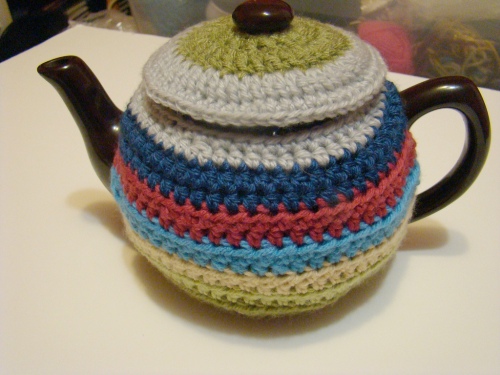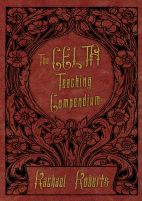
Photo Credit: sukigirl74 via Compfight cc
Back in 1978 the psychologist Melissa Bowerman observed her 13 month old daughter, who was starting to talk. (Psychologists do a lot of this. In fact, I sometimes wonder if that’s the main reason they have children.) Anyway, her daughter was observed pointing at a ball, and saying ‘ball.’ She knows the word ball, you might conclude.
But then, over the next few months, the child also used the word ‘ball’ to describe a balloon, an Easter egg and even a pebble. So what exactly had she learnt? Probably that ball was something (more or less) spherical. That’s certainly part of the meaning, but we’d probably also have to add:
- You play games with it, such as tennis or football
- It doesn’t break when you throw it
- It usually bounces
- It can be between around 3 cm to about 12 cm in diameter
All these points go to make up the meaning of the word ‘ball’.
Now obviously when we teach our students new words, they probably already have the concept of ‘ball’ from their first language. However, there are plenty of cases where the semantic boundaries are blurred. Not all languages divide up the world in the same way. For example, in Polish, the word ‘buty’ doesn’t just mean boots, it also means shoes. In English, we generally use just one verb ‘to put on’ when talking about clothes and accessories, but, according to Michael Swan,
‘Japanese speakers use one verb for garments on the upper body, another for those on the lower body, yet another for garments on extremities like feet and hands, another for articles that go on the head, and another still for jewellery like earrings or a watch.’
Even if there is a direct translation, and you or your students know what it is, the word might still not be used in exactly the same way, or might have a slightly different connotation.
This is why we need concept questions.
Concept questions are something which teachers often learn about in their initial training and then promptly discard once no-one is watching. It feels ridiculous, unnatural and patronising to be asking a series of questions to which we already know the answers. Certainly, concept questions can be overdone and, particularly if they’ve been badly devised, they can be completely ridiculous.
A famous example from an International House CELTA course:
‘He didn’t know if he was coming or going.’
Was he coming?
Was he going?
Did he know?
Done judiciously and thoughtfully, however, a good set of concept questions can produce light-bulbs turning on over students’ heads all over the class, with a minimum of fuss and without lengthy and over-complex explanations.
How to create concept questions
The first thing to consider is what exactly the word or phrase means. You will probably feel you know this, but it can often really be worth looking it up in a dictionary to get all the elements of meaning (as with ball above).
So, for example, the word ‘cosy’. The Longman Exams dictionary says:
‘’A place that is cosy is small, comfortable and warm: the living room was warm and cosy.’’
So key elements would be
- Small
- Comfortable
- Warm
- Used to describe rooms
I’d also say that we could use it to describe clothes (and then small wouldn’t be part of the meaning)
So then we can think about examples that will test understanding of these key elements. These can be short and simple questions, or we can use pictures, diagrams, mime- whatever’s appropriate.
For example, you might have two pictures. One of a small cottage front room, with a fire and the other of a draughty hall in a castle. Then you can ask, Which room is cosy?
Or..
If you are cosy, are you usually warm or cold?
If you are cosy, are you comfortable or uncomfortable?
You can also use negative checking, by asking a question where the answer should be ‘no’ and then asking a follow-up question to make sure they weren’t just guessing!
Is a castle cosy? No.
What kind of house might be cosy? A small, comfortable one.
What kind of shoes might be cosy? Slippers
Personalisation can also help
Which is the cosiest room in your house? Why?
And if you think students do have a fairly good idea, try asking for more information to check.
Give me an example of an item of clothing that could be cosy? (dressing gown, sweater) And one that couldn’t be? (bikini)
Common pitfalls
Using language which is more complicated than the language you are trying to check.
If you’re cosy are you snug and secure?
Checking the situation, not the language
John’s grandma knitted him a cosy sweater for Christmas.
-Did she knit him ear-warmers?
Going too far and dealing with meanings which just confuse the issue.
What do you put on a tea-pot to keep the tea warm? – A tea-cosy (see picture above)
Incidentally, some people believe that you should never use the target language in a concept question. As we have seen, this isn’t the case when dealing with vocabulary, though it may apply to grammatical structures…
It’s going to rain.
Is the weather going to be bad?
When to concept check
Although we refer to it as concept checking, it’s much more than just checking understanding; it’s actually at the heart of teaching. It’s about finding out what students do and don’t understand and helping them to ‘get’ the concept.
That said, you do need to use it fairly sparingly, and most of all wisely. Part of being a teacher (and the hardest thing to teach someone) is knowing just how much clarification students need, and giving it to them in just the right amounts, at just the right moments.
If you are currently taking CELTA, can I suggest my e-book, The CELTA Teaching Compendium, available from Amazon and Smashwords, containing everything you need to know for CELTA teaching practice.














Can you follow me, too? 🙂 Lizzy Adams recommended your blog. I’m a trainer, but my blog is more on the topic of world travel/photography…you’ve got a lot of helpful stuff here, thank you!
Hi Rachel, I’m a teacher trainer and was looking for inspiring articles on CCQs, and thanks to google, I saw yours. I’m preparing an input session on my teacher development course, and your article has helped me a lot..New teachers, and especially the experienced ones without any training will find that we can easily avoid asking the typical cliches “Did you understand?, Any problems? OK?”
Thanks very much, George. Hope your input session goes well. Your trainees might also like Joanne Gakonga’s videos on concept checking http://elttraining.mdl2.com/mod/page/view.php?id=168 and http://elttraining.mdl2.com/mod/page/view.php?id=166 I think they’re helpful because weaker trainees can go back and watch them more than once.
For some reason the widget above won’t let me “like” this post… so let it be known in the comments: I like this post!
Very nicely put together and clearly explained. Just what pre-service trainees need. I’ll be sharing it! 🙂
Laura
Thanks, Laura, your ‘like’ is noted and appreciated 🙂
Are you sure only ‘pre-service trainees’ need it, Laura? 😉
Thank you for this post. I must admit that although I’ve been teaching English for over 20 years, I have seldom used concept questions. I usually concentrate on the context and register when dealing with new vocabulary. And I provide or elicit synonyms/antonyms if relevant.
Thank you once again! 🙂
You’re welcome..and I don’t think you’re alone in not using them. of course, there are, as you say, plenty of other ways, but it can be a handy little technique.
Thanks, Rachael! I had my tiny heureka moment here 🙂 yet another great tool in my teaching box. Have a cosy weekend 🙂
That’s good to hear 🙂 Weekend likely to be cosy at home as weather’s getting horrid again 😦
Hi Rachael, and thanks for a very informative introduction to your blog (I found my way here though Twitter)! I feel the real problem with concept questions is when you have to come up with them on the spot, because a word or phrase has cropped up spontaneously in class. Do you have any advice for such situations?
Matt
Yes, you’re right, that is definitely the hardest bit. The same things apply, really- think about the key elements of meaning and what they might mistakenly think it means, and use those as the basis of your questions. But it isn’t easy to do off the top of your head. What I will say is that, like most things, it gets easier with practice and experience, and that the same things tend to come up again and again, and next time you are prepared!
Thanks Rachael, I’ll get practising. From now on, no concept will go unchecked! 🙂
:)))
Reblogged this on Post-CELTA Confessions and commented:
Not my pet love… maybe my pet hate? 😉
As Rachael says, it ‘feels ridiculous, unnatural and patronising to be asking a series of questions to which we already know the answers’ and that ‘concept questions can be overdone and, particularly if they’ve been badly devised, they can be completely ridiculous.’
OK, so they have their good points. Agreed. BUT, and a big BUT, concept checking ought to be used ‘fairly sparingly, and most of all wisely’, not the way CELTA courses ask you to because, bear in mind, they are ‘testing’ to see if you know how to use it. It’s just that some tutors get overzealous and want you to use CCQs all the time and you might leave the course thinking they’re the best thing to happen since sliced bread!
You are probably aware of my feelings regarding CCQs. Thanks Rachael, for your insight, which, though not strictly original, needs to be repeated every now and then. Have reblogged it, with your permission, and added a short comment, in my CELTA blog.
I had kind of got the impression you weren’t a big fan of concept questions 😉
Actually, I think they are the best thing since sliced bread, but only when used selectively and appropriately…
Hehe… and I don’t really like sliced bread 😉 There’s a new bakery, recently opened, near where I work and I’ve taken to buying this expensive walnut & raisin loaf, which will probably be my ruin! Bread stays fresher if uncut, though this loaf doesn’t last very long in my house!
Seriously, though, I like CCQs more than you think. It’s fun! And the funny look students give when they are first asked one, and then they catch on, and they scream their answers…. it’s fun! Haha.
That sounds delicious..and actually I’m not keen on sliced white either (except for a bacon butty (sandwich) when it is the only choice).
Pingback: A short guide to concept checking vocabulary | ...
Thanks for this. I always give way too much explanation and ask too many questions. I love the idea of using the definition to pull out the key concepts.
Reblogged this on THE BEST LEARNERS.
Now this I found useful. Previously I had been told that CCQ required a yes / no answer. This is way more meaningful.
Good, really glad you found it useful.
I think that’s a common misconception. They need an answer which is easy to give (which might be yes/no, but might not).
Great blog post on a topic that many of us forget to practice!! Even those who’ve been teaching many years – I’ll be fowarding this for some of the trainers I work with, great tips, thanks Rachel!
Thanks, Gabrielle, glad it’ll be useful 🙂
Reblogged this on The Business English Experience and commented:
Rachel’s tips for concept checking – well worth checking out!!
Reblogged this on ENGLISH LANGUAGE REVIEW 4U.
Nicely written reminder for all of us!
🙂
Reblogged this on [my] ESL Ins & Outs and commented:
Thanks Rachel,
It reminds me of “Never work harder than your students”. That was the title of a book I have once flipped through. Then, I was too overwhelmed by the idea itself to pay closer attention to the book. After quite a few years of practice, I still believe it’s the core trick of teaching as such.
I couldn’t agree more- sounds like a good book. I might try and find a copy 🙂 Thanks for the reblog.
My pleasure.
If I remember it correctly, the book was not so much about language teaching but it’s quite relevant anyway.
You may want to have a look at it here:
http://books.google.ru/books/about/Never_Work_Harder_Than_Your_Students.html?id=cVzo-eQDDF4C&redir_esc=y
ps Thanks for your blog 🙂
I’ll have a look at that, thanks. 🙂
Pingback: Revisiting ELT Mantras #1: Using CCQs and ICQs | Richmond Share
Great post! After CELTA, I found I was having trouble making CCQs as effective as they seemed during the course. Your explanation about finding specifics about the meaning and forming the questions using those bits of information was very useful. Thanks! I am about to start teaching English online to students from China and Taiwan, and I know CCQs are going to be important to ensure they understand the meaning of new words and ideas. Especially since I will not be able to see them. Thanks again! 🙂
Pingback: Concept checking | Hanguk Babble
A very helpful post, Indeed. I am having trouble planning CCQs to check the meaning of most commonly used phrasal verbs. Like get on with, turn down(music), get up & give up. Thanks in advance.
The issue with phrasal verbs is rarely the concept or meaning, but usually the form, particularly if they are separable or not. To check the meaning, I’d suggest the same as any other item of vocabulary, look them up in a good learner dictionary and use the information to make the questions. So, for example, turn down music means to make it quieter, so you can say something like, ‘the neighbours are having a party and the music is really really loud. You wait a bit and it’s still really loud. So you go round there and ask them…what do you ask them? ‘ See if you can elicit’turn the music down please’ and then use that to check both meaning and form. E.g. Do you want the music to be louder or quieter? Can you say ‘turn down the music please’ (yes, you can, though it’s probably less common than turn the music down).
HI Rachel! I was wondering whether you could tell me more about concept checking with children in mind. CCQs are definitely helpful and generally useful but is does not always work with elem students (7-8) as the language in the CCQs is usually slightly above their level. It becomes easier with pre- int YLs but I personally find it difficult with younger students.
What I would do instead is either pointing or miming as the vocabulary you teach at this level is mostly concrete rather than abstract. I feel like the higher the level, the more useful and reasonable it seems to use CCQs.
What do you think? Please advise 🙂
Hi Marta,
Yes, I agree, concept questions are not generally very helpful for kids of this age because they require students to understand that you are checking understanding, rather than asking a genuine question. Younger children tend to be fairly literal. Concept questions are also often not the best way to check a simple and concrete item anyway..a picture of, say, an apple would be a lot more effective than asking, Is it round? What colour is it usually? and so on.